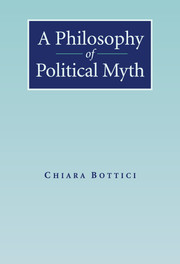12 - Political Myths Today: The Extraordinary and the Banal
Published online by Cambridge University Press: 24 July 2009
Summary
Political myth has often been associated with the extraordinary. Political myths, both when rejected by enlightened thinkers as regression into primitiveness and when acclaimed as symptoms of a great enthusiasm by their sympathisers, were most often seen as manifestations of the extraordinary. According to this view, political myths should have disappeared from modern politics, ruled as it is by an increasing rationalisation and bureaucratisation. However, this does not seem to be the case. Even under conditions of modernity, it seems as if – to paraphrase Geertz – the mythical has not gone out of politics, however much the banal may have entered it (Geertz 1983: 143).
The suspicion emerges that it is precisely through the interplay of the extraordinary and the banal that the work on political myth can, at best, take place today. If this proves to be the case, then by looking for the mythical only in the sites of the extraordinary, in grand parades and blood rituals, one risks overlooking the real sites for political myth. Precisely by rendering banal the extraordinary and vice versa, political myth may come to operate within the ambit of that which is out of question, because it is either apparently irrelevant or too important to be questioned.
It should be remembered here that “banal” literally means “commonplace” in the sense of that which is used by the whole community.
- Type
- Chapter
- Information
- A Philosophy of Political Myth , pp. 246 - 260Publisher: Cambridge University PressPrint publication year: 2007

